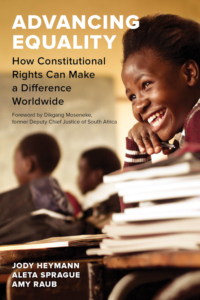Another Win for the UCLA Voting Rights Project
The UCLA Voting Rights Project, a research, advocacy and clinical program within the Latino Policy & Politics Initiative of the Luskin School of Public Affairs, celebrated its role in defeating a challenge to the California Motor Voter law. The case is the third legal win for the Voting Rights Project this academic year, making it undefeated thus far in the courts. A 2015 state law created California’s motor voter system, designed to make it easier for citizens to register to vote by automatically adding eligible DMV customers to the voter rolls unless they opt out. In September, plaintiffs sued in an attempt to put an end to the law and force motor voter customers to prove citizenship by showing their papers. The Voting Rights Project intervened on behalf of affected individuals and presented strong papers, leading the plaintiffs to dismiss the case, said Chad Dunn, the project’s director of litigation. The project is now assessing cases around the country, including in Kansas, New Mexico and rural Washington, as well as in Orange, Ventura and other California counties.


